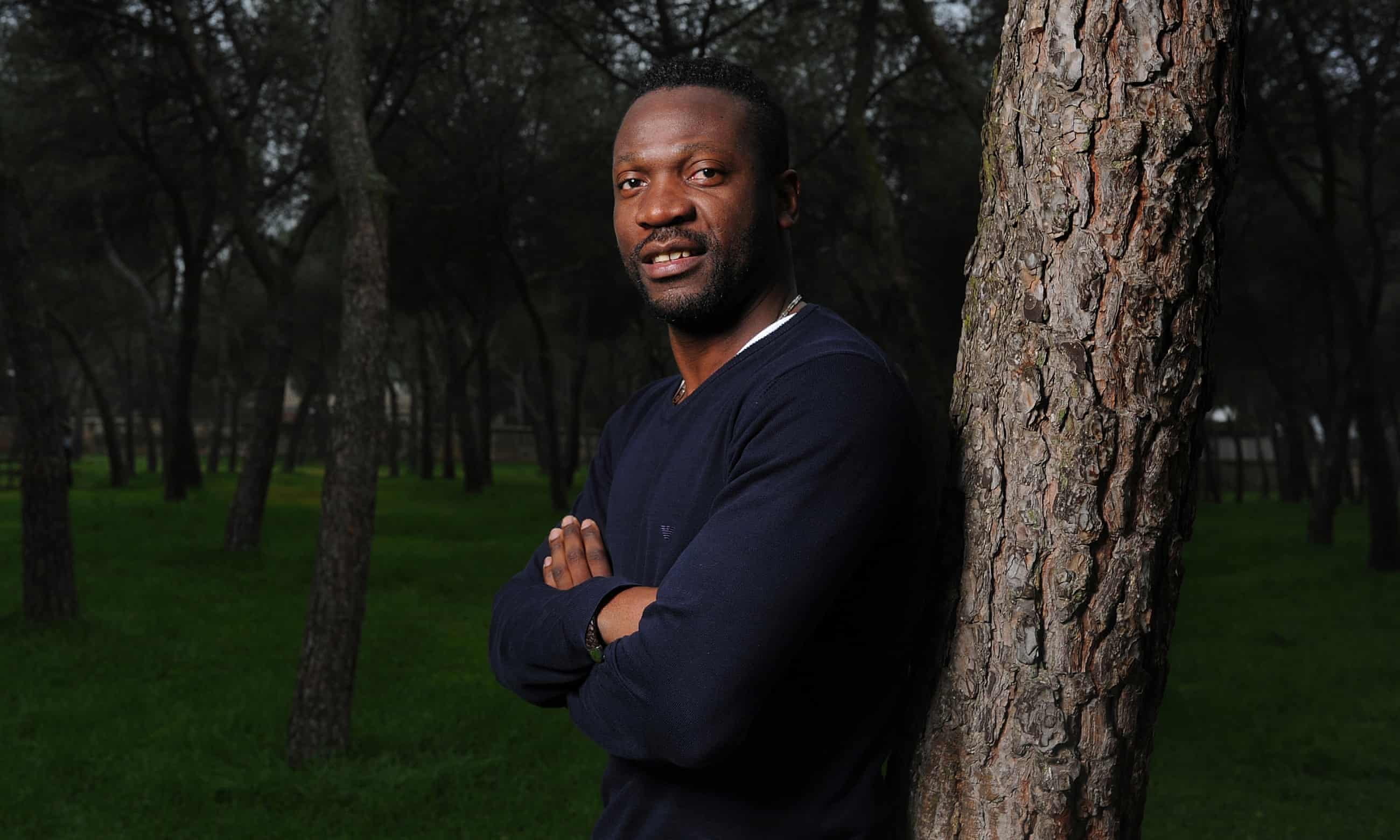
Arsenal
Lauren: 'No one wanted to ref in training. Wenger hid. Pat Rice was the bravest'
Arsenal’s invincible right-back reveals how the warmth of Dein and Wenger led him to Highbury and the joy almost fighting Henry still brings him
by Sid LoweThe way he tells it, they messed up his wedding plans and all for nothing but Lauren did not mind. It turned out to be the best thing that ever happened to him. There are no regrets; there is just laughter, the Cameroon international cracking up so often it is a wonder he can put himself back together again.
In the summer of 1999 the man who went on to be an invincible in London was supposed to be lying on a beach somewhere with his new wife, Monica; instead, he was in a meeting with a couple of men he could not really understand discussing a deal that did not get done.
“I did what Mallorca told me to do,” Lauren says as he begins, with well over an hour of stories flying by, fondness in every word, laughter at every turn. And what Mallorca told him to do that day was go to Rome.
“They pretty much obliged me to change my wedding plans to travel there. I mean, we weren’t going to go to Rome for our honeymoon; we were going to the beach: Barbados, Cancún, somewhere like that. But I respect them and if it’s good for me too, fine. So, we went, met Roma’s Luigi Di Biagio and a club representative. We sat, ate, talked ...”
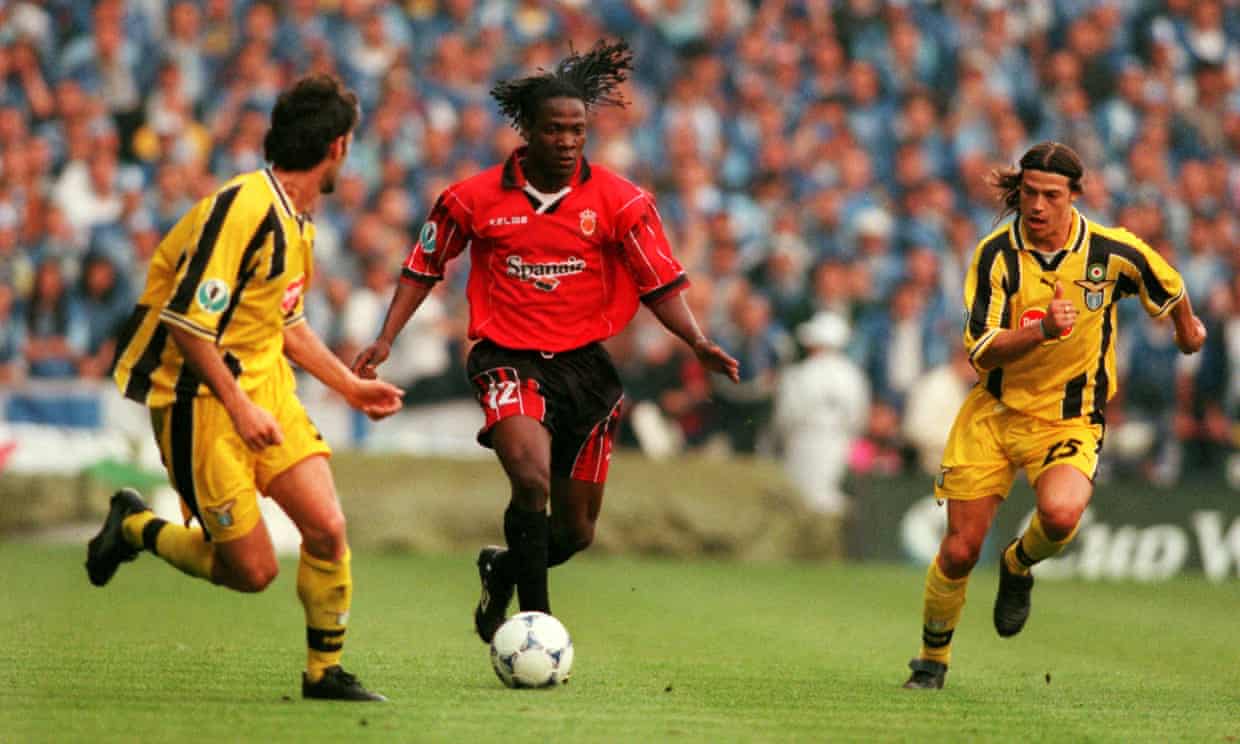
Lauren starts giggling again. “Well, as best we could in Italian and Spanish. I went back and Mateu [Alemany, Mallorca’s former chief executive] said it wasn’t the right year to leave. There were some issues: the usual things between clubs and it fell through. Mateu said don’t worry, we’ll sell you next year, improved my contract, increased the buyout clause and then did that. He always does what he says. I didn’t know if it would be Roma, I just knew that in 2000 they would sell me. It didn’t matter who.”
It was Arsenal.
“Monica understood. We could have 200,000 honeymoons later. We gave up that moment’s happiness but we’re still enjoying the rewards of having done things the right way,” he says and has no doubt they did things right, even rejecting the biggest club of all. “We met [Juan] Onieva [Real Madrid’s then vice-president], but we didn’t reach an agreement, so we got a flight, flew to London, landed, went straight to David Dein’s house. And by the time we left, my mind was made.”
“I didn’t feel any sadness not to be going to Madrid,” Lauren says. “The way Madrid negotiated back then was way off what it should be. It was like you had to do what they said: ‘This is how it is, full stop. Because we’re Real Madrid.’ And when another club comes along with another attitude, however much you liked Madrid, you go. You join the people who treat you best. Madrid’s attitude was: ‘If you like it, great. If not, see you.’ So, I said: ‘OK, very good, I’m off to London.’”
He pauses. “I don’t think they expected it.
“Arsenal offered a better contract and better opportunities for a young player, light years from Madrid’s offer. It was very clear from the start, in the way Dein and [Arsène] Wenger acted. It wasn’t: ‘Come to the club [offices].’ No, it was: ‘Come to my home, with my family. Join us.’ In negotiations normally everyone sits there all serious, in suit and tie, but they were totally different. Dein’s treatment man-to-man was fantastic. And Wenger’s sitting there with that human warmth, that approachability. It immediately feels different.
“Wenger didn’t say much. He listened. He knew about the football; he knew perfectly what you could do. He wanted to see the person: the character, whether you could handle it. They saw I was mature, I could take that step.”
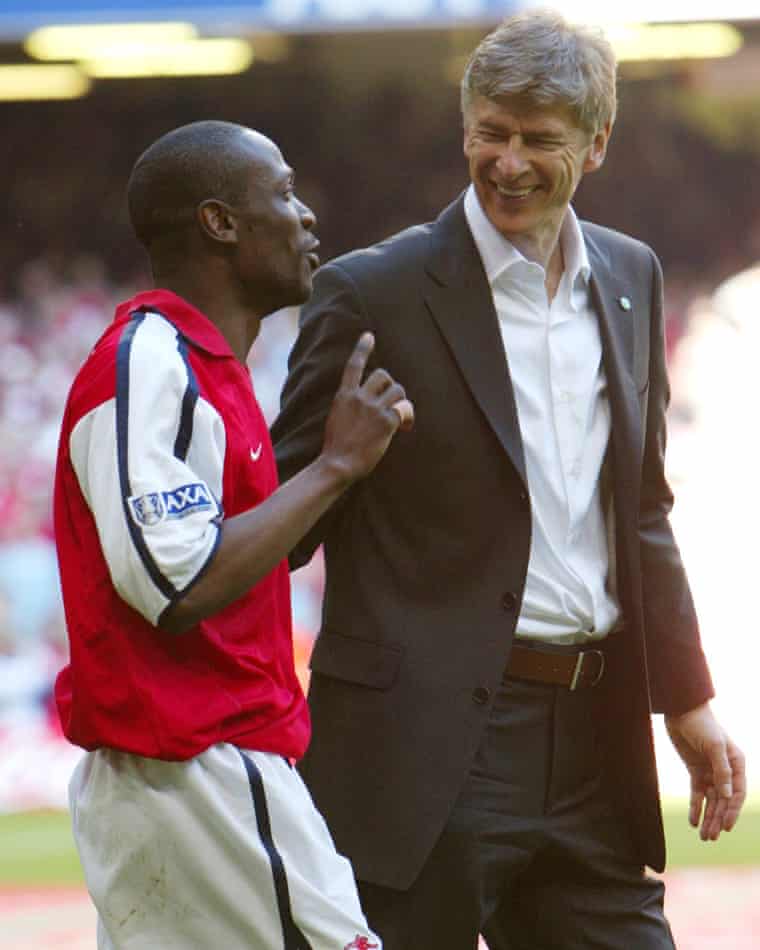
It was some step. A new country, a new city, a new language, even a new position. A new climate above all. “Hail in August,” Lauren says, laughing again. “Bloody hell, what is this? Monica never really got used to it. I’d get home and it would be: ‘Let’s go back to Seville.’ Wenger knew and said to me one day …” Lauren adopts his Wenger voice. “‘Lauren, you can’t have everything. This is Arsenal: look at your wages, where you play, you cannot have everything in life.’ And he was absolutely right, as right as a saint.”
He was right on other things, too: not least that a winger, central midfielder or No 10 could shine at full-back. “Wenger would come along and say, looking you in the eye,” Lauren begins, returning to his impression: “‘Top players can play any position; if you have the sense of the game, the passing game, if you understand, if you’re gifted, you can play there.’ Someone who trusts you is the best thing a young player can have. You knew inside that what he said was true and if you followed him it would happen the way he said.
“Although the person who most worked with me – and the whole defence – was Pat Rice. Day in, day out, week in, week out, every bloody day. I had such an affinity with him. From the start, he loved me. There was a connection.”
The tactical and technical lessons are still at the forefront of Lauren’s mind. He reels off Rice’s instruction manual for defenders. Which he was not yet, much like Ashley Cole and Kolo Touré, he says. But soon, he adds, “the coordination you had seen with [Tony] Adams and co was perfected”.
Training sessions were brutal. “When there was a game, Wenger would say: ‘Who’s the ref?’ Pat Rice, [former equipment manager] Paul Johnson, [assistant coach] Boro Primorac … No one wanted it. Wenger was clever – he got out of there, went to the corner, hid and just watched. Pat was the bravest and he’d end up arguing with everyone. There was argument after argument: Freddie [Ljungberg] with this guy, Martin [Keown] with that guy, me with someone else. [Dennis] Bergkamp was a genius but he was also incredibly competitive. That’s why we won.
“Why did Thierry Henry become Arsenal’s all-time top scorer? Talent? Because he was really good and a great athlete? No. Because he wanted to be the best every single day of his life. He never ducked a game, never said: ‘I’ve got a knock.’ The session finished and he’d stay to take shots, practise diagonal runs. On the bus, Henry, me, Edu and [Patrick] Vieira played cards and Henry got angry if he lost. You can laugh but it was like that. If you didn’t give him the ball, if he didn’t score, he would get mad. It was horrific.
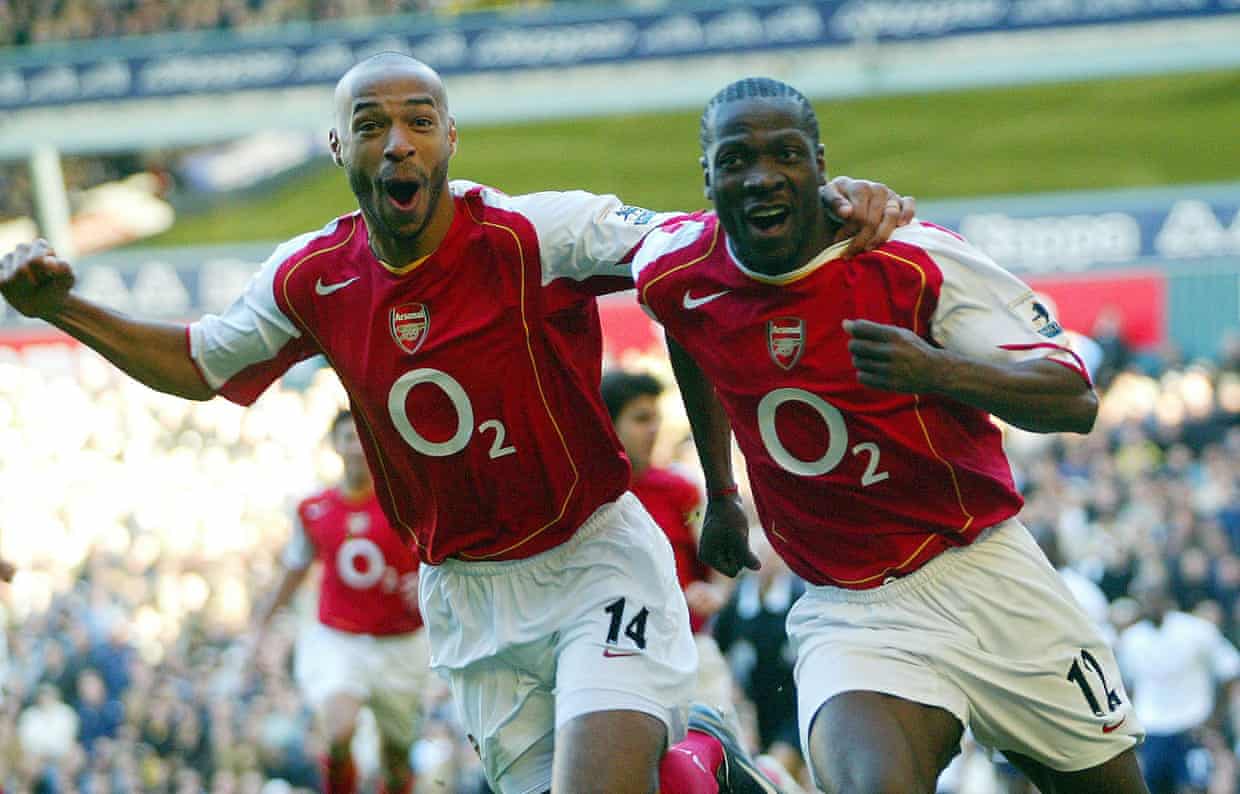
“I’ve had confrontations with Henry and Vieira, Vieira with Martin Keown, Keown with Henry, Henry with Ljungberg, everyone. There was one at Riazor against Deportivo when Henry stopped and raised his arms at me. Bloody hell …” Lauren cracks up recalling what followed in the dressing room: a flying bottle, a smashed mirror, staff holding him back. “You should have seen our training sessions. It’s a good job journalists weren’t there; it would have been horrible. When Gilberto Silva came and saw how we trained ...”
Lauren is falling about laughing again, barely able to get his words out; when he does, the punchline is delivered with a Gilberto Silva impression. “Martin Keown goes in hard and he’s unlucky enough to injure [back-up goalkeeper] Rami Shaaban,” he begins. “We get to the dressing room and Gilberto says: ‘Bro, is everyone mad here?’ From the next day on, he never once took his shin pads off – and we’re talking Gilberto Silva. We were hard, everyone wanted to win. And that showed on the pitch.”
It certainly did. Lauren scored on his first start, against Liverpool – “even though Adams says it was his” – and there was a reason that team became the Invincibles. So, how good were they? A silly question gets a surprisingly good answer. Who would win a match between the Invincibles and the Cameroon team who claimed Olympic gold and the Africa Cup of Nations the year Lauren joined Arsenal, a side he proudly describes as “spectacular”.
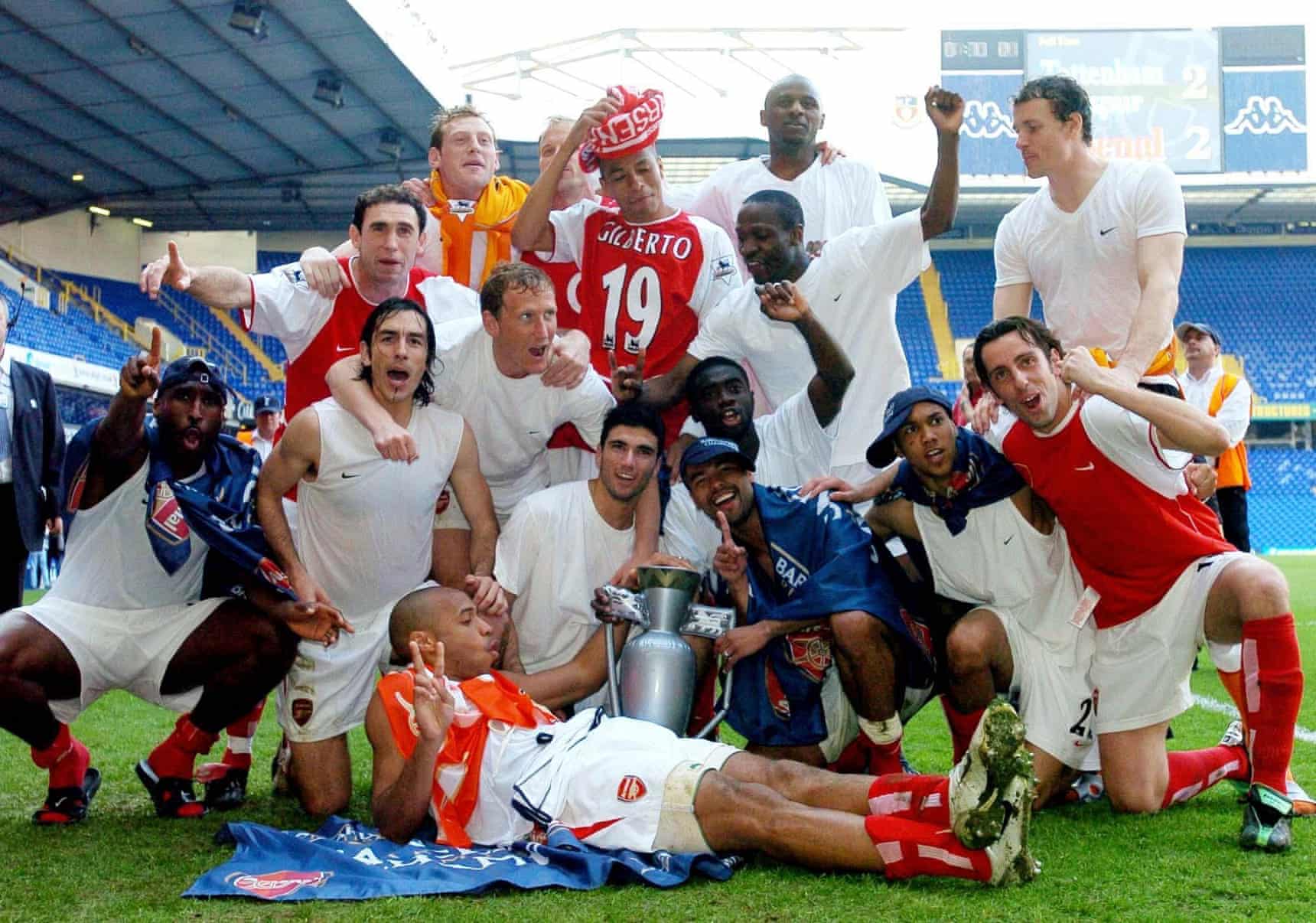
“In a league game?” he shoots back. “Or in a tournament where Arsenal play quarter-finals, semi-finals, final?” He’s booming again, rolling around. “Listen, listen, wait: on the pitches that Cameroon team had to play on? Burkina Faso, Togo ...” More giggles. “Go on: put Xavi, Iniesta, the great Barcelona on those pitches, see if they can play fantasy football. Of course it’s Arsenal if you’re talking Premier League. But in Africa at 35, 40, 45C, I’m saying Cameroon.”
Lauren would not have swapped either team for anything – even a honeymoon. “The passion for English football, pfff, I’ve never seen it … only once in Cameroon when it took us four hours to get from the airport to the hotel in Yaoundé. No lie, I’ve never seen so many people. The first home game, I sat next to Ashley Cole by the dressing-room window. You could hear the noise, how it rolled, the roar. And that’s nearly two hours before the game, bloody hell. You just wanted to play: ‘Give me the ball.’ Highbury has something magical.”
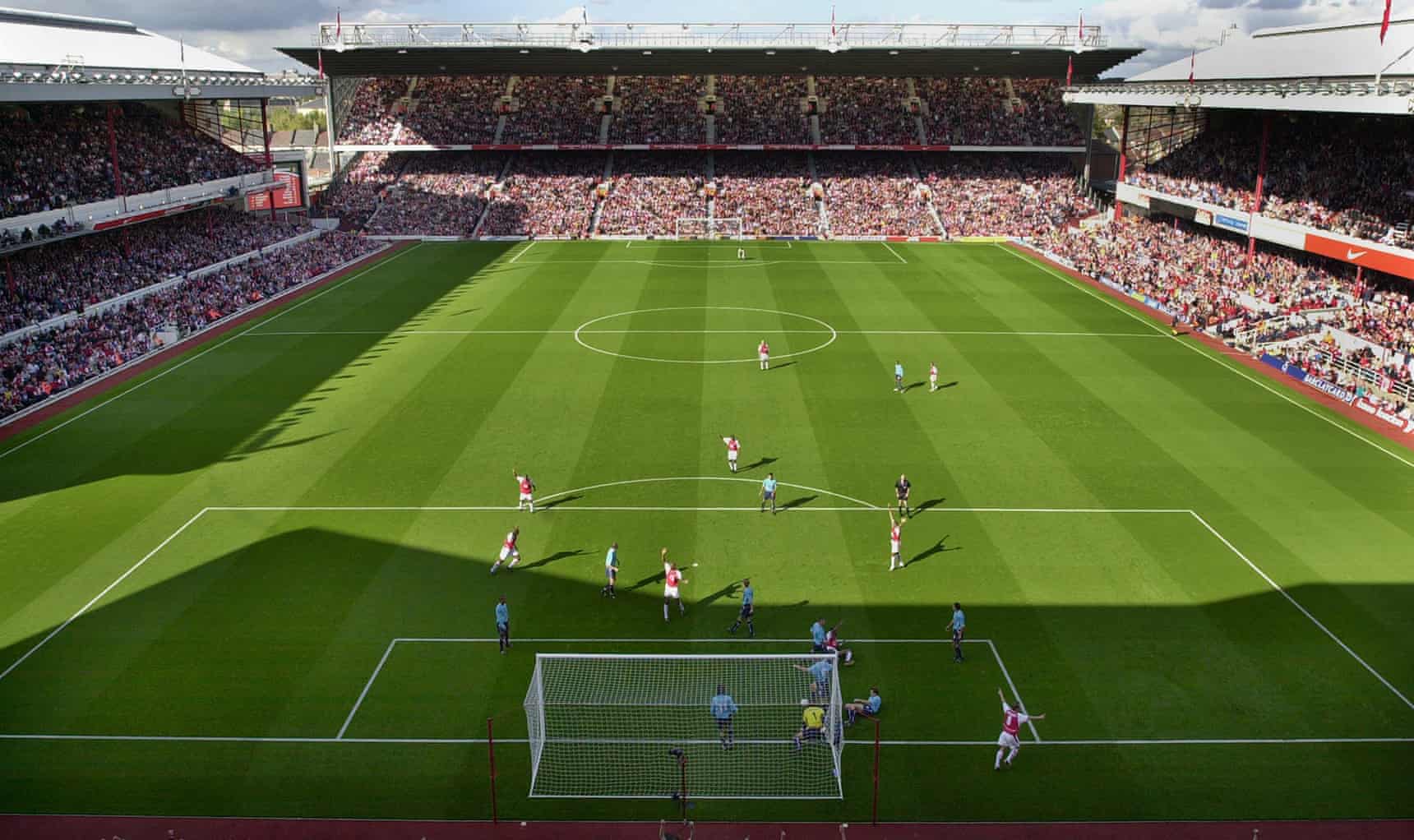
It all worked out nicely. Negotiations breaking down in Rome and Madrid, destiny and two men leading him instead to a life-changing move completed 20 years ago this week. And one that he’d make again and again.
“No doubt, that was the best decision I took in my life. Playing with players like Bergkamp, Henry, Vieira, [Jens] Lehmann. Being at an institution like Arsenal. The English philosophy. The way they treat you. The best manager a young player can have. And the chance to win every trophy there is. I would never have imagined it back in Seville.”
Oh, and even the honeymoon in Rome turned out right. “We weren’t planning to go there but Rome is incredible,” Lauren says, grinning yet again. “The Trevi fountain, the forum, the Colosseum, wow, it was spectacular. We were there for seven nights and were blown away by the history. We had blisters by the time we’d finished.”